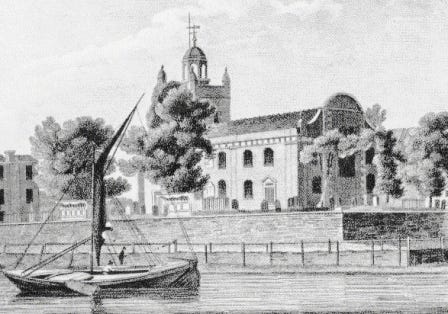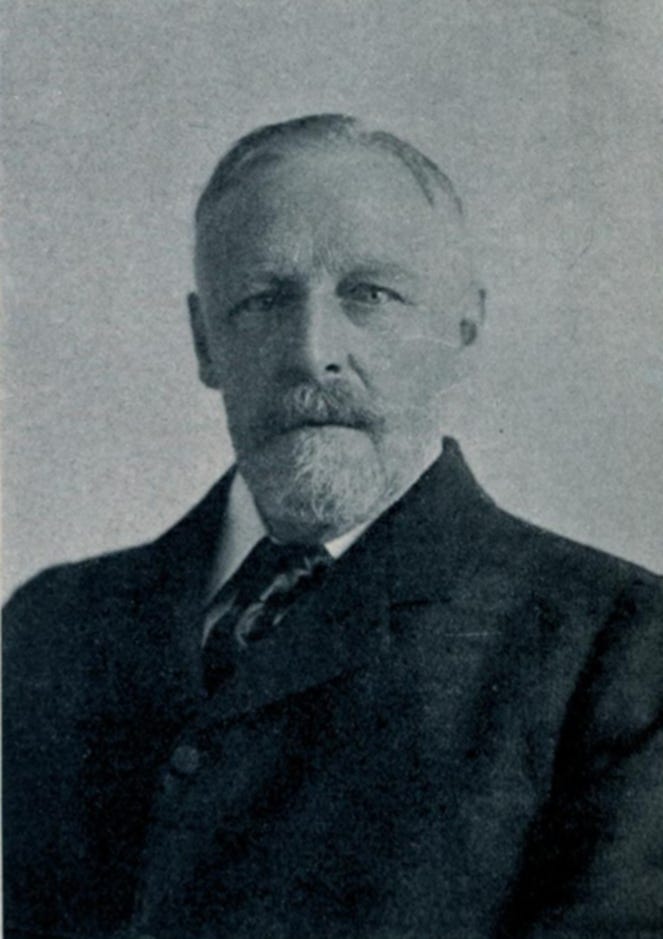The organist's elopement
What happened to the organist who went missing after eloping with a young woman in 1907, and why couldn't the private detectives find him?
Isleworth’s church, where duplicitous Harry Foan was the organist
Researching private detectives can be very frustrating, but also very rewarding. It frequently involves being a detective myself, digging around in various archives to try and find details of an individual and their life. In the case of Harry Foan, his family couldn't locate him, and nor could the family of the woman he had eloped with. They hired a private detective agency to track the two down - and that agency also failed to find them. Over a century later, however, and with the help of digitised records, I was able to succeed where the agency failed.
This story starts with a marriage at Paddington, on 16 April 1900, between a Bristol-born man, Henry James Foan - known as Harry to his loved ones - and East Londoner Nellie Matilda Meggs. Harry was 26 - four years Nellie's senior. The couple settled in Stoke Newington, where Harry initially worked as a superintendent at an insurance agency. They had two sons - Cyril Henry George, born in 1901, and Thomas Hector, five years later.
Harry does not appear to have been much of a settling-down man. He changed jobs fairly often, and by 1907, he was working for a typewriter company for between £5 and £6 a week. On the side, he was also the organist at Isleworth Parish Church, and appears to have been a choirmaster as well. London domesticity rankled with him, and suddenly, after telling his wife that he was 'tired of her', he vanished.
Nellie made desperate inquiries to find out where her husband was; he had left her without the means to look after their two young children. She eventually found out that he had been living with another woman - and that both of them had now disappeared. She duly summonsed her husband for desertion. Her case was heard at Brentford Police Court on 19 December 1907, where she detailed her situation.
Montagu Sharpe, who heard Nellie Foan’s case
Suddenly, a stylishly-dressed woman stepped into the box and asked if she could give the magistrate, Montagu Sharpe, her card, rather than having to say her name out loud. He agreed. She detailed how she was the mother of seven children, and that in June 1907, one of her daughters had mysteriously disappeared. This lady - who described her 'mental anguish' at the situation - ended up employing private detectives to try and locate her daughter, but they failed.
The detectives failed on this occasion, but by chance, a family friend was walking down the Strand one day when he saw the daughter. He begged her to write to her mother to explain the situation, and she did so, saying she was with 'Harry'. In court, the mother said she had no doubt that her daughter was living with Nellie Foan's husband, for she had confessed it. As a result of the anonymous lady's evidence, it was agreed that Nellie could have a separation order, and Foan be made to be her an allowance of 30 shillings a week - even though it was not known where he was.
The entry for Harry’s wife and children in the 1911 census (TNA/TheGenealogist)
From this point, Harry Foan disappears from UK records - he is not on any subsequent census, or marriage or death records. Nellie is more evident - she had to move in with a bachelor brother in Twickenham, where she raised her sons and died in 1959, aged 82. Without the name of the stylish lady and her daughter, how could I find out what happened subsequently, when the private detective agency had failed?
They had failed because they hadn't considered that Harry Foan might leave the country after deserting his wife. He can be found in US census records, living in New Jersey, with a wife named Edith Gertrude, and three sons, Kenneth, Roy and Gordon. Was Edith the daughter of the lady in court? It seems she was. Working back from Edith's own death record - the US records registering her birthplace (England) and her parents' names, it's clear that Edith was the young woman who ran off with a married man.
From the 1911 census, I could see that Edith's mother, Louisa Brothers, was the mother of seven children (she had had ten, but three had died). There was a gap in the list of children's names where Edith should be. It was Louisa Brothers who had given evidence in Nellie Foan's court case, desperately trying to avoid scandal and gossip by refusing to say her name out loud.
Her daughter, Edith Gertrude Brothers, was the third surviving daughter of Louisa and her husband John Arthur Brothers, a surgical instrument maker. If you looked at the 1901 census alone, you would not get Louisa's name, as John Brothers is inexplicably described as a widower in that census, with Louisa away from home. He was not a widower. Edith and Harry lived in New Jersey for decades; Harry died there in 1947, but Edith lived on until 1983, dying at the grand age of 102.
It's hard to know how much their families at home knew about what had happened about them. When Harry's mother died in 1918, the family grocery shop was left to her surviving children (and her late son William's wife). Harry is not mentioned in the legal documents about this as being unknown or deceased so it sounds like his family may have learned of his whereabouts (and of course, they were not called to give evidence in the police court case, so did not say then if Harry had told them where he was). What is certain is that Harry could not have been legally married to Edith, as Nellie was very much alive and describing herself as married in the censuses.
But where the private detective agency failed to find Edith for her mother, I was able to do very quickly - such is the benefit of modern life, with its different, online, methods of detection.






